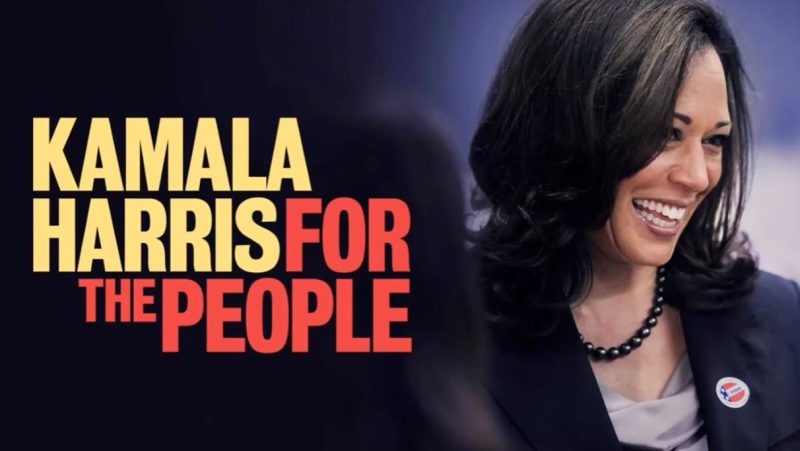
Vice President Kamala Harris is gaining ground on Donald Trump in the critical battle over the economy, a topic that could decide the 2024 election. In a recent interview with Stephanie Ruhle on MSNBC,
Harris made her case directly to voters, emphasizing her vision for economic policies that focus on middle-class families rather than corporate interests. The interview marked Harris’s first major one-on-one appearance since securing the Democratic nomination, and she used the opportunity to challenge Trump on one of his perceived strengths: economic management.
Harris’s Economic Vision
During her interview with Ruhle, Harris highlighted her economic strategy, which involves raising taxes on corporations and the wealthy to fund programs that directly benefit working families. This includes investments in healthcare, education, and housing, all of which Harris argues are critical for maintaining a healthy economy. She stressed that her plans would not add to the national deficit and would help bring down inflation, which remains a top concern for many Americans.
“We need to invest in the people who make this country work,” Harris told Ruhle. “My economic approach is about lifting up the middle class, making sure families can afford their homes, healthcare, and groceries without worrying about getting squeezed further.”
Harris’s plan also involves targeted measures to lower costs for households, including capping prescription drug prices and increasing access to affordable childcare. She made a direct appeal to voters who are feeling the pinch of high living costs, arguing that her policies are designed to alleviate financial pressure in a sustainable way.
Contrasting with Trump’s Economic Plans
Harris was unreserved in her critique of Trump’s economic approach, particularly his focus on tariffs and corporate tax cuts. She warned that Trump’s policies would result in higher consumer prices, hitting working families hardest. Harris told Ruhle that Trump’s reliance on tariffs as a tool to boost American manufacturing would function as a hidden tax on everyday goods, from groceries to electronics, hurting average consumers.
“Tariffs are not just a number on a spreadsheet; they are dollars out of people’s pockets,” Harris said. “Trump’s policies might look good on a campaign flyer, but they hurt real people at the checkout line.”
Trump’s economic message centers on deregulation, tax cuts, and a promise to bring back American jobs through protectionist trade policies. While these themes resonate with his base, Harris used the MSNBC platform to argue that they come at a significant cost to consumer spending power. She positioned her economic vision as a balanced alternative, promoting growth without the added burden of higher prices.
Polls Show Tight Race on Economic Trust
Recent polling data suggests that Harris’s economic message is resonating. A new AP-NORC poll shows that the economy, once a clear advantage for Trump, is now a near tie between the two candidates. Approximately 40% of registered voters believe Trump would handle the economy better, while a similar percentage feel Harris would do a better job. This is a marked change from earlier polling, where Trump consistently led on economic issues by a comfortable margin.
Harris’s ability to distance herself from the Biden administration’s economic challenges, particularly on inflation, appears to be helping her close the gap. Voters have long been critical of President Biden’s handling of the economy, especially during the period of high inflation in 2022. However, Harris’s focus on middle-class economic relief, paired with a clear differentiation from Trump’s policies, has given her campaign a much-needed boost.
Voter Concerns and Key Issues
Economic concerns remain at the forefront of voter minds heading into the November election. High inflation, rising interest rates, and persistent costs at the grocery store continue to dominate public sentiment. Despite a low unemployment rate and stock market gains, many voters feel that their day-to-day financial situations have not improved significantly, making economic policies a key battleground.
Harris and Trump offer starkly different economic visions, and the tight polling numbers reflect how divided the electorate is on this issue. For Harris, the challenge is to maintain momentum and continue making her case that her economic strategy will deliver real benefits without the hidden costs associated with Trump’s proposals.
Harris’s Strategy Moving Forward
Harris’s appearance on MSNBC was more than just a routine interview—it was a strategic effort to redefine herself as a credible leader on economic issues. By addressing voter concerns head-on and contrasting her policies with Trump’s, Harris aims to solidify her position in what has become a statistical dead heat.
As the election approaches, Harris’s ability to sway undecided voters and maintain her growing economic credibility could be the deciding factor in a race that remains intensely competitive. For now, the economy is no longer just Trump’s playing field; Harris is making her presence felt, one interview at a time.
With the stakes so high, every debate, media appearance, and policy announcement will matter. Harris’s MSNBC interview with Stephanie Ruhle marks a pivotal moment in her campaign, signaling that the economic narrative of the 2024 race is still very much up for grabs.
